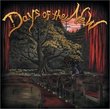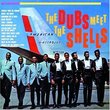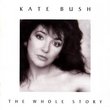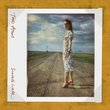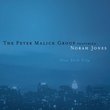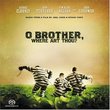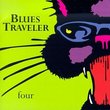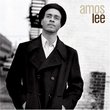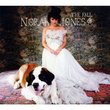| All Artists: Suzanne Vega Title: Songs in Red and Gray Members Wishing: 0 Total Copies: 0 Label: Spectrum Hmn Original Release Date: 1/1/2001 Re-Release Date: 9/25/2001 Album Type: Import Genres: Alternative Rock, Folk, Pop, Rock Styles: Singer-Songwriters, Singer-Songwriters, Vocal Pop, Adult Alternative Number of Discs: 1 SwapaCD Credits: 1 UPCs: 606949311124, 0606949311124 |
Search - Suzanne Vega :: Songs in Red and Gray
 | Suzanne Vega Songs in Red and Gray Genres: Alternative Rock, Folk, Pop, Rock
Suzanne Vega remains one of the most relentlessly, mercilessly tasteful recording artists alive. Every note on Songs in Red and Gray has been arranged with the meticulous precision of a butler laying silver on a table. Eve... more » |
Larger Image |
CD DetailsSynopsis
Amazon.com Suzanne Vega remains one of the most relentlessly, mercilessly tasteful recording artists alive. Every note on Songs in Red and Gray has been arranged with the meticulous precision of a butler laying silver on a table. Every sound is so polished and buffed that you barely notice you're listening, every syllable of every lyric only admitted to the melodies after painstaking reviewing and rewriting, and every song sung as if Vega believes that her core audience consists of elocution teachers. This has worked, occasionally, for Vega before--it should not be forgotten what an original presence she was with "Left of Center" and "Marlene on the Wall"--and it works, occasionally, for Vega now. There are a few fine songs here, notably the gently acerbic "Last Year's Troubles" and the wryly subversive "Maggie May" (not the Rod Stewart standard), but there is also a whole lot of glutinous, over-refined suet. Vega still needs to give her songs a much longer leash. --Andrew Mueller Similar CDs
Similarly Requested CDs
|
Member CD ReviewsReviewed on 4/20/2010... "Penitent," "Songs in Red & Gray," "Machine Ballerina" and "Solitaire" are the standouts on this CD, for me. "Penitent" and "Songs in Red & Gray" are both gentle, melancholy, beautiful things; "Penitent" apparently about a mixed-feelings kind of relationship, possibly with God, while "Songs in Red & Gray," as near as I can tell, is the story of a woman attending the funeral of her former lover's wife. The other two are more quirky and attitude-driven; "Machine Ballerina," which has a playful pseudo-carnival sound, is about a girl who feels like she is nothing but a toy to someone (lover? parent?). In "Solitaire" the speaker plays the card game to avoid her problems, yet also as a metaphor for them. And I probably put way too much thought into these things.
Some of the songs seem a little wobbly to me; I think on this album Ms. Vega is still figuring out her craft. But it's worth listening for the stronger tracks. Goodness knows, I could listen to her delicate charcoal-smudge voice all day! CD ReviewsAnatomy of a Break-up Glen Engel Cox | Kuala Lumpur, Malaysia | 02/12/2003 (4 out of 5 stars) "With some albums, to fully enjoy them takes some extra knowledge that you have to acquire outside of the tracks and liner notes themselves. For example, Eric Clapton's "Layla" is a beautiful song, but it becomes something more when you learn that Clapton wrote it as a love song to his best friend's wife. Similarly, Fleetwood Mac's album Rumours contains all sorts of hidden messages sent by the three songwriters of the group to their respective exes: Buckingham to Nicks, "packing up, shacking up's all you want to do" from "Go Your Own Way" and Nicks to Buckingham, "players only love you when they're playing" from "Dreams." Some are obvious--Roger Water's paeon to his father in Pink Floyd's The Final Cut--while others take a kind of fanaticism to decipher (the ongoing battle between John Fogarty and his ex-manager in songs like "Zanz Kant Danz").Between Suzanne Vega's last studio offering, 1996's Nine Objects of Desire, and this release, several things occurred in her life that provided the germ for the songs and the tone of Songs in Red and Gray. Both her two previous albums had been produced by her husband, Mitchell Froom (they had married in 1994, between the two albums he produced), but the new album is produced with Rupert Hine. Vega also separated from Froom in 1998, retaining custody of their daughter, Ruby Froom.The change in producers is the first thing you notice as you start listening to Songs in Red and Gray, which sounds much more like Vega's first couple of albums in their intimacy and the relationship between Vega's soft vocal and the accompiament. While it's not a total return--most of the songs sport more than the sparse guitar and soft synthesizer work that is the focus of songs like "Marlene on the Wall" or "Knight Moves" (both from her eponymous first album)--there's nothing like the industrial clanging or heavily sampled guitar that Froom brought to "Blood Makes Noise" (from 99.9F) and "No Cheap Thrill" (from Nine Objects of Desire). Froom's production was complicated and took a lot of risks, some of which worked, but often was at odds with the kind of folk tradition of Vega's compositions and lyrics. Some of this risk is still present in Hine's production, but it is much more muted, such as the syncopated backbeat in "Solitaire" and the calliope sound that bridges the lyrics of "Machine Ballerina."Once you start listening to the lyrics, however, you start to get glimpses of the aftermath of Froom and Vega's partnership that is not part of her sound but that of her life. The results is often startingly confessional, masked only by the smoothness of her delivery and the softness of her tone, which makes even what could be the harshest criticism somewhat reflective and apologetic. We shouldn't be too surprised--I find it hard to imagine Vega ripping someone to shreds a la Elvis Costello.Consider these lines from "If I Were a Weapon":if you were a weapon a hammer's what you'd be blunt and heavy at the end and coming down on me or even this from "Machine Ballerina":Am I an afternoon's pastime? a thing on a string to be thrown and retrieved like a phone call received on somebody's birthday to tease and delight and then say goodnight and then just say goodbye?What leavens these kinds of accusations are the parts where Vega reveals her complicity in the breakup, from acknowledging that the fault wasn't necessarily in Froom that makes up the strongest song on this album, "Soap and Water." In it, she sings to her daughter, "Daddy's a dark riddle/Mama's a handful of thorns/you are my little kite/caught up again in the household storms." This ability to reflect on how the change might be affecting her child is one of Vega's strengths, to remove herself from the scene while also being a participant. Like a good novelist, she strives to discover not only the motivation of her narrator, but also the other characters in her passion play.This is not an album that is instantly rewarding, as nothing here has the instant hook of "Luka" or "Tom's Diner." On repeated listens, however, it insinuates itself inside your psyche until you start to admire not only the phrasing but also the gentle way it is presented to you." Shimmery Beauty Beth Johnston | 10/27/2001 (4 out of 5 stars) "Suzanne Vega has long been one of my favorite singer/songwriters, much more original and sharp in her lyrics and music than many other female folk singers. I was surprised to see that this album aroused such irritation in many of her fans, and I almost didn't buy it after reading the reviews on Amazon. Luckily, it was playing in a local music store and on hearing it in full I snapped it up; I think it's one of her best. Certainly, there's no question that it can't compare either to her debut, _Suzanne Vega_, or to the brilliant and original _Nine Objects of Desire_. But put side by side with any other album from Ms. Vega's catalogue, Songs in Red and Gray more than holds its own. Like the rest of her work, this album has its hits and its misses. I particularly like the religious commitment of "Penitent," the ironic honesty of "Widow's Walk," the Mitchell-Froom-esque harshness of "If I Were a Weapon," and the sheer playfulness of the sound on "I'll Never Be Your Maggie May" and of "Last Year's Troubles." The song that really gets to me though is "Soap and Water." Here Suzanne Vega is at her lyrical best, crooning to her daughter in the middle of a painful divorce, "Daddy's a dark riddle/Mama's a headful of bees/You are my little kite/Carried away in a wayward breeze." These are fresh, original metaphors, showing Vega's much-vaunted poetic side. On the other hand, I was happy to see that overall, Vega's lyrics have become more straightforward, less obscure, not pandering by any means, but confident that their simplicity and spareness will carry all the nuances of feeling she wishes to express. Her voice, too, sounds as clear and controlled as ever. The music doesn't SOUND like it did on 99.9 degrees Fahrenheit or Nine Objects, of course--she has a different producer. But that doesn't condemn the album in my mind; just because it's different doesn't mean it's worse. Give this CD chance; after a few days you'll see that, like a cut flower, it's opened its petals to show its full, astonishing beauty."
|

 Track Listings (13) - Disc #1
Track Listings (13) - Disc #1
